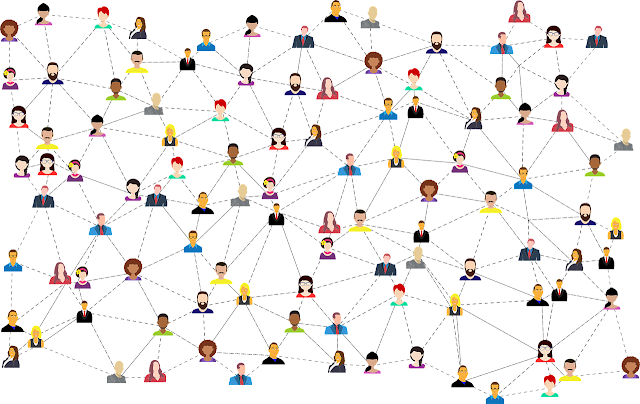This is another post in a series on first-generation college students and social media. In these posts, I have attempted to present characteristics of first-generation college students, and describe possible interventions from social media.
First-generation college student, (and aspiring first-generation high shoo students), are defined as those students who have no parent who has attended college or university. This definition points to a defining problem for first-generation students: they have no entry into the "culture of college."
When entering a new environment for the first time, it is extremely important to know how to navigate and to communicate, to know the social norms and how to extricate oneself from difficulties. (If you have traveled beyond your own country, or attempted to fit into another social community, this may resonate with you.) First-generation college students do not pick up this knowledge from their parents, and are often unaware that this knowledge is, in fact, extant and necessary.
There are many difficulties that arise from trying to move from one culture into another without having the requisite knowledge. A difficulty frequently reported is lack of access to resources, from financial resources to those necessary for health and well-being. This puts up barriers to the success of these college students. Three related barriers include:
- Lack of support from family members, who do not understand the requirements and pressures of college.
- Alternatively, pressure from family members to be "the one that succeeds."
- The stress of trying to fit in and live in two separate cultures.
While social media has been demonized for getting in the way of student success through "addiction" and draining time away from studies, a rather remarkable amount of research indicates that the opposite is true. In fact, social media has been demonstrated to support student success, especially in navigating college.
Social media such as Facebook and college-specific social media platforms can provide students with information about such topics as buying books and supplies, interpreting course catalogs, and locating places on campus. Especially important functions of social media platforms are the access to other individuals. College students can maintain bonds with family members and "pre-college" friends, but can also make contact with others through social media. Depending on the college, students may also be able to connect with potential mentors, with counselors or peer-based support groups that can address the feelings of being overwhelmed, out-of-place and loneliness that most college students face. Interactions with others that help students cope with such feelings are vital to success.For first-generation students,these feelings may have an extraordinary impact, as these feeling may come out of left field, as it where. Students with a cultural understanding of college may expect these feelings to come about, and be aware of resources that can help.
In summary, social media platforms, Facebook being an example, provide access to information and support that facilitates success. One way this happens is in supporting the "college-culture" scaffold that students to stand upon in order to achieve their their academic accomplishments.
Credits
Deil-Amen, R. Rios-Aguilar, C. Can Social Media Improve Student Success
https://www.slideshare.net/sashatberr/can-social-media-improve-student-successfinal,
Today's First Generation https://www.slideshare.net/noiram4/todays-first-generation, presented by Trio Programs.
Image by Free-Photos from Pixabay


